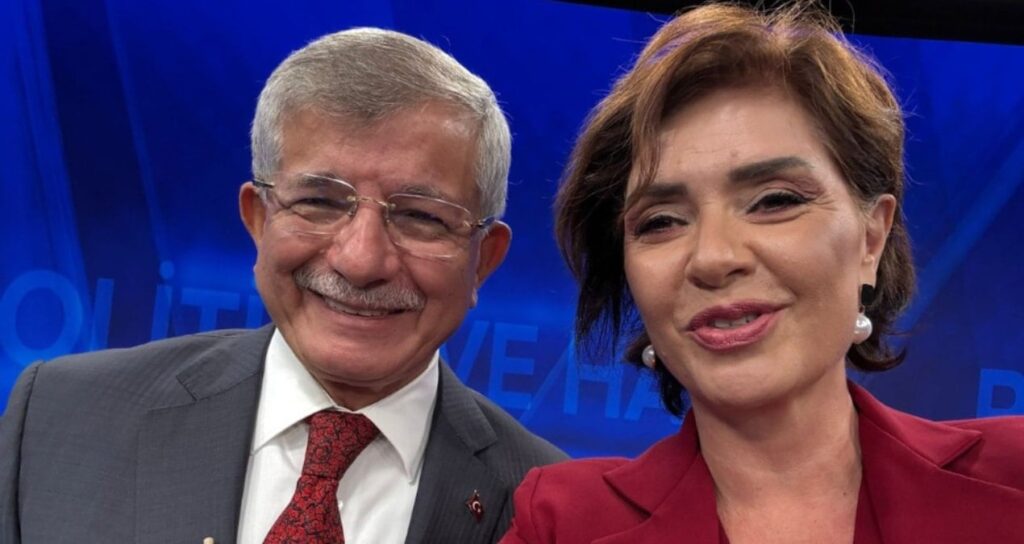Future Party Chairman Ahmet Davutoglu made headlines during an appearance on a local television program, where he offered insights into Turkey’s political landscape and the current state of governance. He highlighted significant issues concerning the leadership dynamics in the country and critiqued the effectiveness of current bureaucratic institutions. His remarks particularly focused on the lack of proactive political engagement in international forums and the weakening authority of Turkey’s political structures.
| Article Subheadings |
|---|
| 1) Critique of Political Leadership |
| 2) The Role of Institutions |
| 3) International Relations Challenges |
| 4) The Impact of Bureaucracy |
| 5) Future Prospects for Leadership |
Critique of Political Leadership
During the program, Ahmet Davutoglu expressed his concerns about the current leadership style within the ruling party, the AK Party. He took a reflective stance, stating, “I undertook a very difficult job” when he previously held the position of Prime Minister. His commentary suggested a longing for a return to a more assertive political leadership that would genuinely represent the interests of the nation. Davutoglu criticized the party’s choice of leadership succession, citing the low profile of figures like Binali Yildirim, whom he describes as ineffective leaders who lack the political prowess necessary to elevate Turkey’s standing.
The Role of Institutions
Davutoglu stressed the importance of strong institutions in maintaining the stability and functionality of the state. He pointedly remarked, “No one is permanent,” highlighting the transient nature of political appointments and the need for robust governmental foundations. He alluded to the current state of Turkey’s political institutions as “rotten,” indicating that poor stewardship has undermined their effectiveness. This perspective implies that revitalizing these institutions could enhance governance and restore public trust in the political system.
International Relations Challenges
One of the key points Davutoglu raised was the lack of political engagement on the international stage, particularly concerning issues surrounding Palestine. He noted that historical precedence, such as the actions of Yasser Arafat in 1988, showcased the importance of standing firm on global issues. He reflected on how Turkey, alongside 57 Islamic nations, could have taken a collective stand at the UN General Assembly in support of Palestinian recognition but failed to mobilize. This failure to act, in Davutoglu’s view, is indicative of a broader apathetic approach to foreign policy.
The Impact of Bureaucracy
Davutoglu critiqued the current government’s reliance on bureaucratic figures rather than seasoned politicians. He remarked that today’s ministers are more akin to technocrats than decision-makers equipped with political savvy. Citing the example of the Ministry of Treasury and Finance, he stated that there is a growing disconnect between the political elite and the citizens they serve. This concentration of power within bureaucratic structures has led to public discontent regarding policy-making processes.
Future Prospects for Leadership
Looking forward, Davutoglu expressed skepticism about the current trajectory of Turkish politics. He pointed out that without a significant internal reform, the nation risks continued political stagnation. He highlighted the crucial role of political leaders in shaping a national narrative and cautioned against complacency within the party ranks. The challenge lies in fostering a political environment that encourages accountability, initiative, and genuine public representation.
| No. | Key Points |
|---|---|
| 1 | Davutoglu critiques the current leadership of the AK Party, expressing concerns about ineffective governance. |
| 2 | He emphasizes the importance of strong institutions for political stability and long-term governance. |
| 3 | Davutoglu calls for proactive engagement in international affairs, particularly regarding Palestine. |
| 4 | He highlights the drawbacks of a bureaucratic leadership lacking political experience. |
| 5 | Davutoglu warns of the potential stagnation in Turkish politics without significant reforms. |
Summary
In summary, Ahmet Davutoglu‘s recent statements underline significant concerns about Turkey’s current political climate. His emphasis on revitalizing political leadership, strengthening institutions, and engaging in global issues reflects a need for a transformative approach to governance. As Turkey navigates its complex political landscape, the necessity for reform and proactive leadership becomes increasingly evident, showing the urgency for political figures to earn public trust and ensure effective representation.
Frequently Asked Questions
Question: What are the main criticisms made by Ahmet Davutoglu about current Turkish leadership?
Davutoglu criticizes the lack of effective political leadership within the AK Party, focusing on issues such as the mediocrity of successors and the failure to engage properly in international matters.
Question: Why does Davutoglu emphasize the importance of strong institutions?
He believes that strong institutions are vital for maintaining state stability and functionality, warning that weakened institutions lead to ineffective governance.
Question: How does Davutoglu view the role of bureaucracy in the current political climate?
Davutoglu argues that an over-reliance on bureaucrats over seasoned politicians results in a lack of responsiveness to citizens’ needs and a disconnect from effective policy-making.
